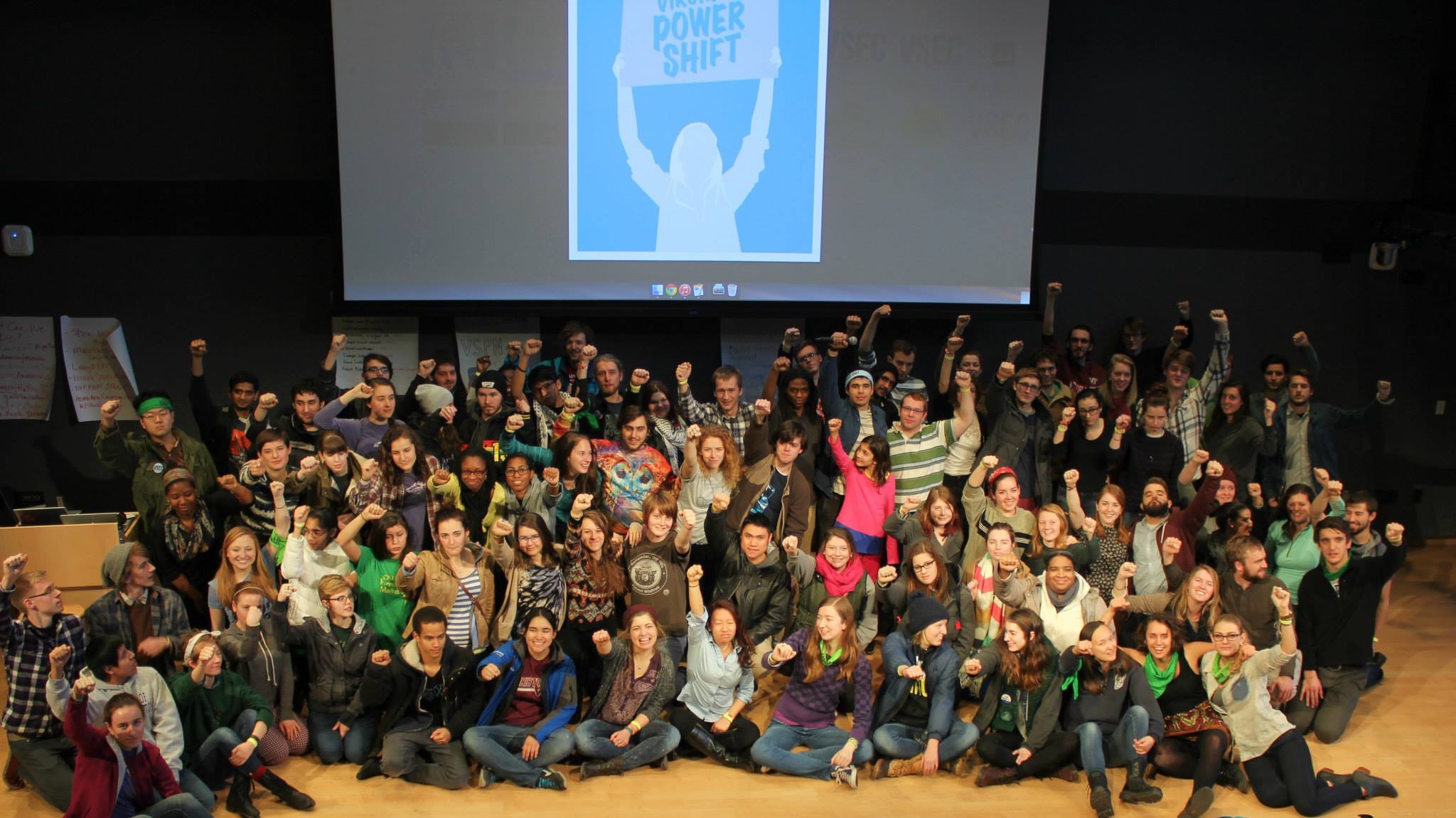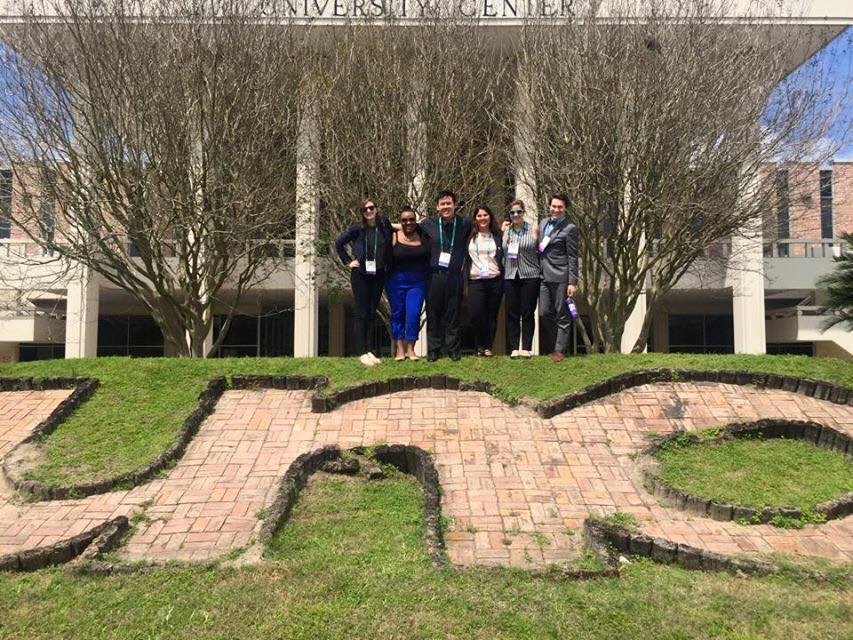“There are no separate systems. The world is a continuum. Where to draw a boundary around a system depends on the purpose of the discussion.” -Donella H. Meadows
We cannot allow our worldview to be influenced solely by our understanding of individual interactions and experiences. There are always larger structures and systems at play that inform and guide the microcosms of the world that we see on a daily basis. In order to understand our world at a greater level, we must be aware of these systems and their influence.

Participants of the 2015 Virginia Power Shift Conference, which focused on ending student debt, addressing climate change, and inspiring student activism.
Understanding the parts of a whole and how they work together to reach a common purpose provides organizations, teams, universities, and communities with the opportunity to thrive as a system. During my time at George Mason University, I have made a personal effort to learn as much as I can about the various departments, organizations, and resources on campus. I have found it valuable to store information about the various opportunities and resources on campus in order to inform my greater understanding of the university as a whole.
It is important, when serving as a leader, to recognize that you are operating in a system that is far bigger than yourself. Our society has been shaped by dominant narratives that guide the way in which we understand the world around us. We must be mindful of this if we are to critically analyze the systems that we operate in and who they were meant to serve-and why. I did not always view the world in this way. I understood my world through individual interactions and stories that operated separately from one another. I now realize that those individuals shape and are shaped by larger structures at play . That is not to negate the very significant value of a personal narrative, but rather to put those narratives into a larger context.
This has largely been guided by my continued understanding of issues of power and privilege. In order to understand the role that privilege plays in our society and how it is maintained, we must see it as systemic in nature and upheld by the status quo. It is not an individual phenomenon that suggests that someone has never dealt with difficulty or hardship but instead is a larger concept that impacts lived experiences through short-term and long-term occurences.
Systems thinking also involves recognizing various strengths and services across organizations and communities to work towards a more dynamic and complex understanding of the overall result. For instance, one of my first experiences as a Leadership Consultant was the Leadership Mason Conference Committee, which I have since served on for three years. Being on this committee has showed me the behind the scenes planning of large-scale community events. I saw how faculty members from various offices such as Housing and Residence Life, LEAD, ODIME, WGST, Career Services, etc. came together to figure out how to come up with a strategy for an efficient and well-structured conference. Each office played a specific part in the development of the conference and each committee member served on their own sub-committee. This was one of my first experiences with a committee of this nature and it has been fascinating to see this event go from various, disconnected parts to an actual conference with all of those parts completing the whole.
Understanding these individualized instances of collaboration has allowed me to expand my knowledge of the Division of University Life. Acknowledging the ways in which the division develops programming, works towards goals such as student retention, and responds to crisis has allowed me to see the ways in which departments must pull together to maintain the mission of the division. Further understanding the ways in which University Life works with the administrative and academic departments allows individuals to understand their greater role in the function of George Mason University as a whole. As I prepare for a career in higher education, acknowledging how these larger systems interact with one another will inform much of my practices.
Finally, on a personal note, I believe that the actions of one always have an effect on the whole. I maintain this awareness within myself as I navigate through life and make various decisions, as I know they will not only have an affect on me. This awareness helps me make informed decisions and is an internal motivation to ask the opinion of as many people as I can before acting on it. Each time a new idea comes to mind, I like to ask people from various backgrounds and influences about their opinion. I will continue to use this going forward as I develop ideas and work to see them come to fruition.

